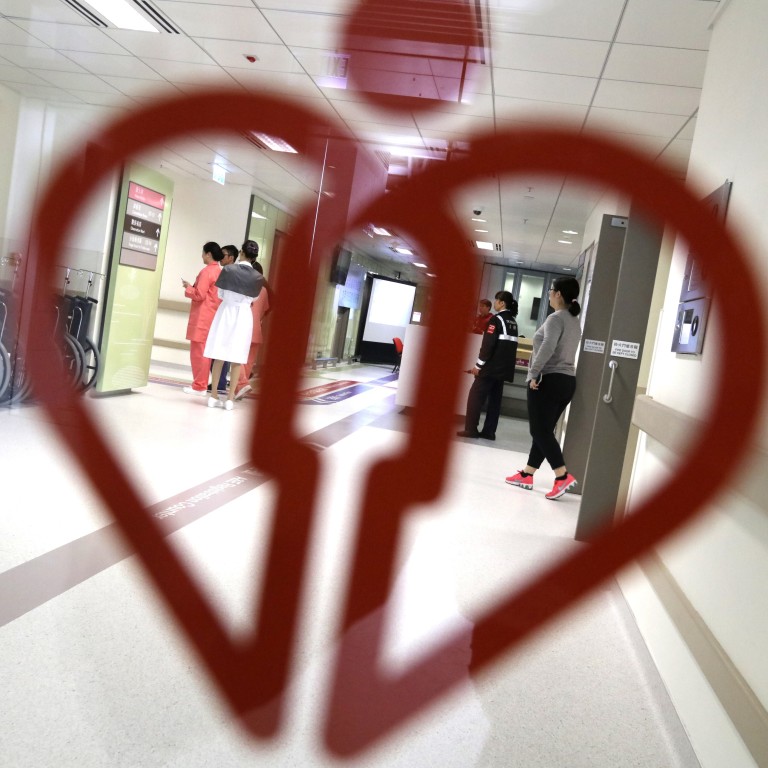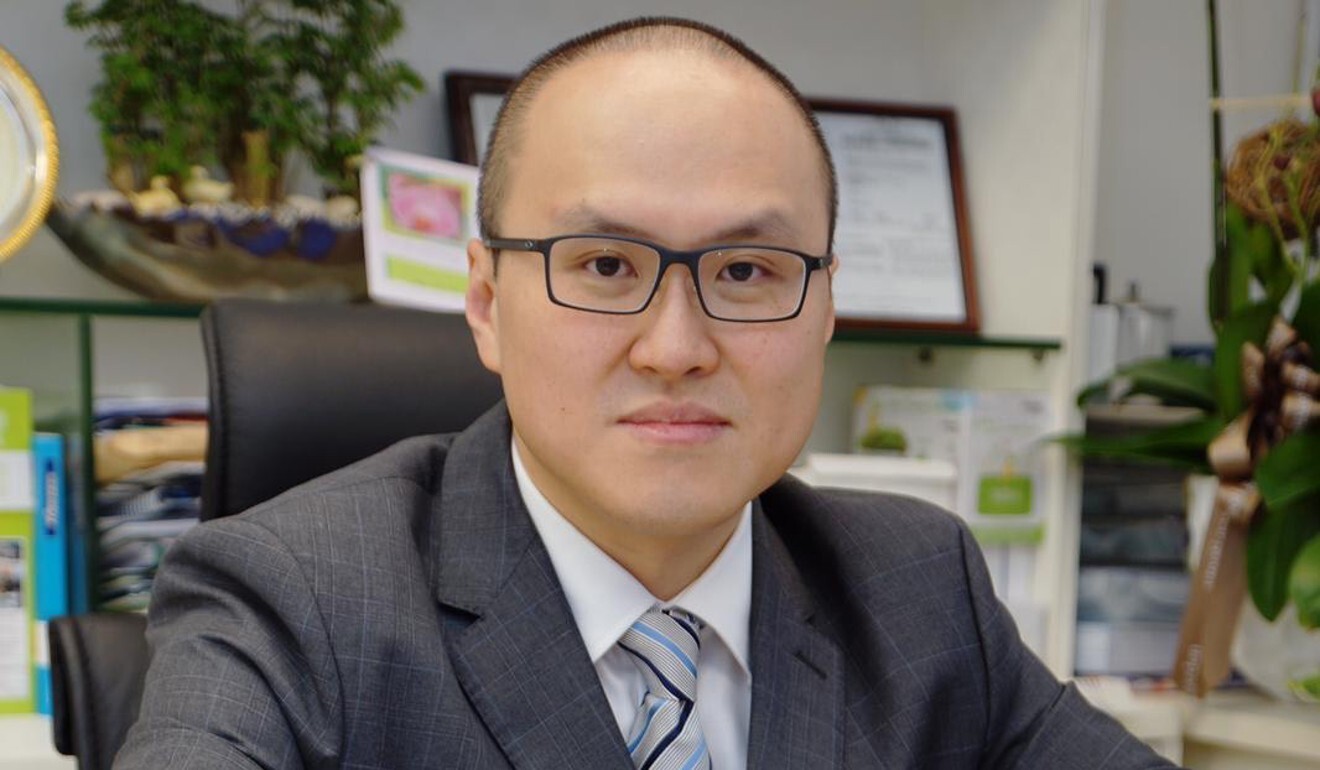
Hong Kong coronavirus: children restrained to ward beds for safety and parents told beforehand, officials say over row on isolation of babies
- Health officials defend the practice after concerns raised over how infants and other children with Covid-19 are treated in hospital
- If space permits, parents who do not carry the virus will be given the option of staying with the children, it says
Hong Kong’s Hospital Authority has stressed that children being treated in paediatric wards are only placed in restraints after parents are notified and under no circumstances would the adults be unaware of such an arrangement.
But a hospital would only consider the application of physical restraints on paediatric patients for their safety and well-being, the authority said.
Appropriate and prior consent would be sought from the parents or guardians, it said.

02:36
Hong Kong gym Covid-19 cluster expands to 109 total cases
The authority also reiterated a previous government statement that said parents who were not carrying the virus would be given the option of staying with their infected children in hospital, subject to the agreement of the Department of Health and the availability of isolation facilities.
The government’s policy for treating very young Covid-19 patients and its rules for families in quarantine have exploded into the spotlight this past week after the coronavirus rampaged through the expatriate community, forcing families into isolation camps and hospital.
Covid-19 and kids: how Hong Kong cares for city’s young coronavirus patients
In one message on Facebook, it was claimed two brothers, aged one and five, were restrained, left unwashed and not given a change of clothes. The boys’ mother, who had been sent to the quarantine facility at Penny’s Bay, said she was finally allowed to visit them after repeatedly pressing the Department of Health and its Centre for Health Protection, only to find them crying in the beds surrounded by cornflakes, rice and other food debris.
“I couldn’t imagine what would they turn into living 14 days like that,” she said in the post.
Hospital Authority chief manager Dr Linda Yu said at the time authorities would investigate.
“In general, for toddlers or young children who test positive but are not with their parents, we will discuss with the Centre for Health Protection how to arrange isolation and quarantine measures for them to facilitate childcare,” she said.

In its statement, the authority also said that in allowing parents to stay with their infected children in hospital, the facility would explain the risk of contracting the infection to the adults. Essential infection-control precautions and personal protective equipment would be provided, but the parents would be required to undergo an additional quarantine period after the children were discharged, it said.
Among the recently infected were two married staff members of the United States consulate, as well as one of their children, a three-year-old girl. The consulates of Switzerland, Britain and the United States have all expressed concern over the tough rules for handling families with Covid-19 sufferers, while pro-Beijing media accused the parents of invoking diplomatic immunity to skirt quarantine – a claim sharply denied by the American mission.
“We are applying the exceptional treatment, not exceptional because they are US consulate staff, but exceptional because of their family circumstances,” Lam said.
US slams Chinese media for claims about consulate staff in Hong Kong
The city had 118 people under the age of 18 isolated at quarantine facilities, which housed 1,378 people as of Sunday, for a rate of 8.5 per cent.
The Food and Health Bureau issued a lengthy statement on Tuesday defending the arrangements, saying that in the case of any minor sent into quarantine, the Department of Health upon request would generally allow one of the parents to stay with them.
In the event a parent tested positive and was admitted to hospital, a caretaker arranged by the parents could be allowed to accompany the child instead. The Social Welfare Department was also providing a range of items for children, including cots, blankets, diapers and baby food.
For parents or family members of a paediatric Covid-19 patient who were also diagnosed with the virus, hospitals would consider placing the patients in the same isolation room, depending on their health conditions, the bureau said.
“In cases where the parents test negative, public hospitals will also accommodate their request to accompany the paediatric patient, subject to the agreement of the Centre for Health Protection … and the availability of isolation capacities,” it said.
What you need to know about Hong Kong’s expanded Covid-19 vaccine drive
Amid growing calls to allow families with children to instead isolate at home or a hotel, health experts have cautioned that Hong Kong’s generally cramped living conditions cannot provide enough distance between people.
“We cannot do that at homes in Hong Kong, which are different from the houses overseas,” said Professor David Hui Shu-cheong, a government adviser on the pandemic. “A house in a foreign country might have five rooms and three bathrooms and therefore quarantine could be done at home. But most homes in Hong Kong are apartments, which do not offer separate bathrooms for people requiring quarantine.”
Hui pointed to an example from last year in which a man and his son infected the mother while quarantining at home after arriving from the US.
“The practice in foreign countries cannot be done in Hong Kong,” he said.
For parents and their children deemed close contacts of carriers but were not themselves infected, infectious disease expert Dr Joseph Tsang Kay-yan suggested the government consider letting them quarantine at hotels, where the facilities would be better, rather than at the government camps.
The growing scrutiny of Hong Kong’s policies has also ignited a debate over whether breastfeeding mothers with Covid-19 should take their uninfected babies with them to hospital.

The World Health Organization recommends that infected mothers continue to breastfeed their infants, as the benefits “substantially outweigh the potential risk” for transmission.
“In infants, the risk of Covid-19 infection is low, the infection is typically mild or asymptomatic, while the consequences of not breastfeeding and separation between mother and child can be significant,” it says on its website.
“At this point it appears that Covid-19 in infants and children represents a much lower threat to survival and health than other infections that breastfeeding is protective against.”
But Tsang advised infected mothers against bringing their breastfeeding babies into hospital with them.
“What would happen if the mother’s condition suddenly deteriorates and she is sent to the intensive care unit? Who will take care of the baby in the hospital?” he asked.
Tsang added that even if mothers were wearing masks at all times in hospital, there was no guarantee babies would not be infected by the adults’ droplets.


